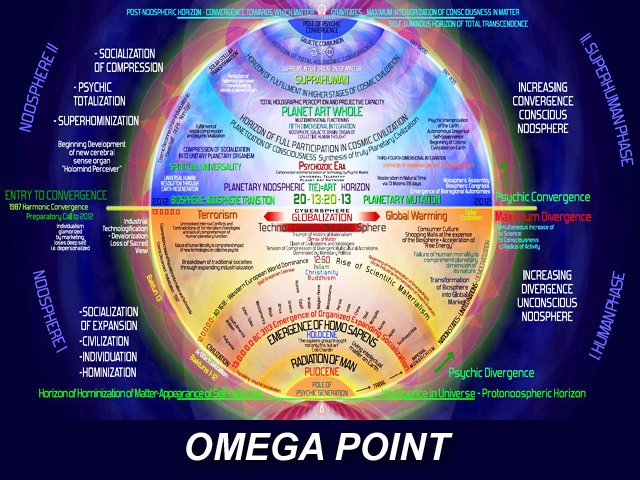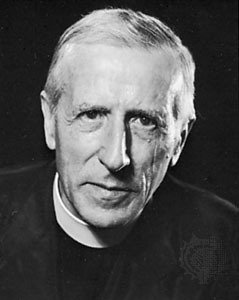The Unifying Evolutionary Drive of Consciousness

The Phenomenon of Man By Pierre Teilhard de Chardin. My Review.
"The Phenomenon of Man" by Pierre Teilhard de Chardin is an extraordinary visionary book. Written in 1938, it predicted the advent of a so-called Noosphere, a layer of knowledge covering and connecting our planet, which has found a physical expression in the form of today's internet.
The book is mostly about paleontology, how life arose from abiotic material and how life evolved to generate man, who in its turn will lead to a convergence of evolution in what Teilhard de Chardin called the Omega point. This unique vision showing how the one became many and the many will become one again finds a strong resonance in the present day hype of the coming Technological Singularity.
But the book is not merely an accurate overview of the phenomenological aspects of evolution by a paleontologist; Teilhard de Chardin transcends the scientific method in giving a rightful place to the "within" of forms of being. This within is "consciousness" and if life was able to perfect itself to progress from mere physical interactions to sensations and culminating in knowledge of self and environment then this is because there was a conscious awareness associated with it, from the smallest forms of existence onwards.
Teilhard de Chardin therefore a priori seems a panpsychist or rather a pantheist, who pinpoints exactly the sole essence which really counts. But he does not stop there: Evolution has a direction, namely the direction of concentrating consciousness in form, striving towards an apotheosis of knowledge, which gradually is attained by the formation of the noosphere and which will culminate in the theogenesis of the Omega point. But this Omega point is not a simple merger of the drop with the ocean as in Hinduism, which advocates the dissolution of the (false) ego. Rather, the Omega point is the essence of "personalisation" in which the true ego of each living human reaches its pinnacle.
Written in days when totalitarian systems were usurping the power in the world, Teilhard de Chardin recognises that although there is a fundamental and crucial drive in the unifying purpose of such systems, their execution thereof is wrong by the very denial of the rights of the individual. Unification needs to be all-inclusive and lead to an expression of the best anyone can be. From a profound humanitarian point-of-view and not as a matter of exclusion of the weaker, Teilhard de Chardin even anticipates the necessity of eugenics to avoid degeneration of the physical aspects of the species in a world of abundance.

Picture of Pierre Teilhard de Chardin from Wikipedia.
The strange thing is that Teilhard de Chardin was a Catholic Priest and his pantheistic and evolutionary ideas do not only prima facie seem to be contradictory to his religion but were de facto strongly condemned by his Church. Interestingly, Teilhard de Chardin sought to unify these opposing views by stating that the Omega point is not necessarily a future construct, but in fact in a sense is already there as the "Great Presence". He is able to justify his ideas as "Christian" as he reveals a proper unifying drive in all that is, an expression of intelligence and love seeking connection from the smallest particle to the highest creature. Thus his Pantheism is more a Panentheism in which God has both an immanent and transcendent aspect.
This is a book that even today has not lost a grain of its importance but rather is of ever increasing relevance in the light of the rapidly approaching Singularity.
A must read for every contemporary and future oriented philosopher!
By @technovedanta a.k.a. Antonin Tuynman
good post friends, continue good luck always